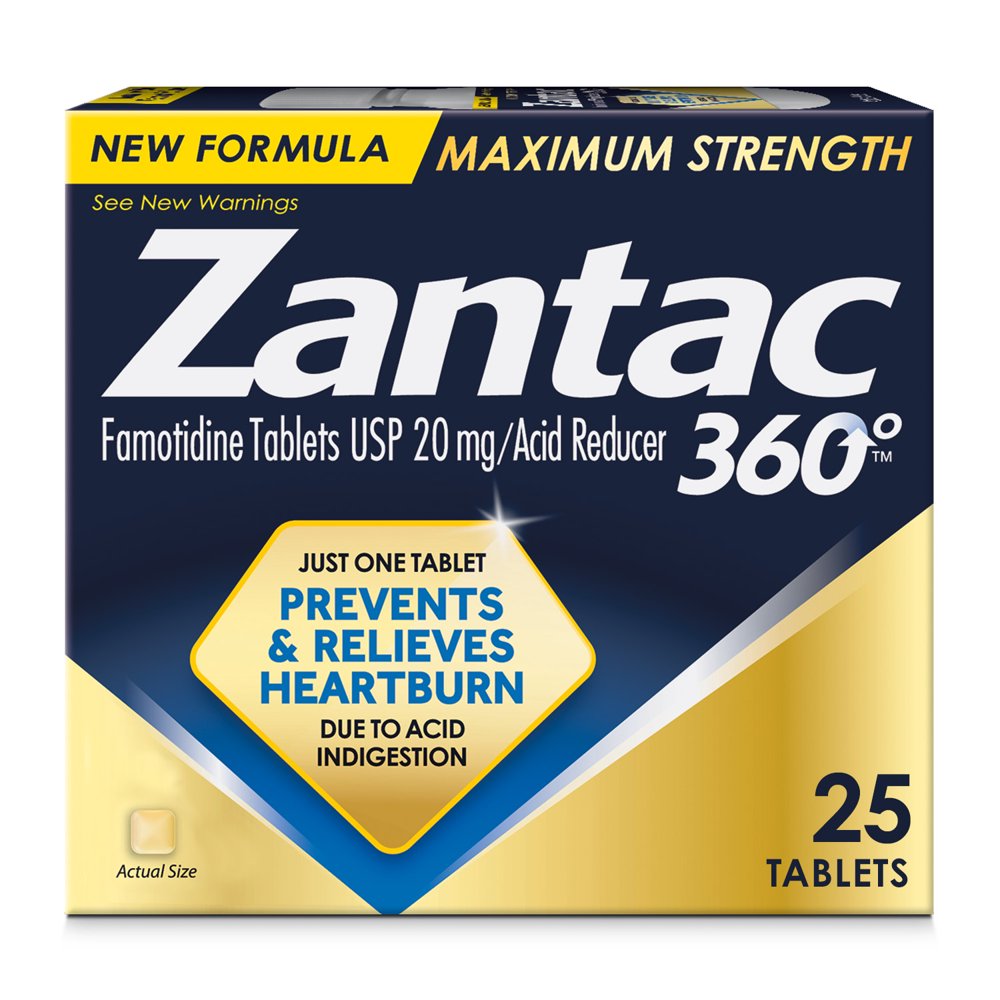In April 2020, the Food and Drug Administration (FDA) issued a recall of all prescription and over-the-counter (OTC) versions of ranitidine, more commonly known as Zantac, due to an increased cancer risk. Recently, the medication relaunched with a new name and ingredient: Zantac 360 (famotidine). The oral tablet is available in two strengths (10 mg and 20 mg) and without a prescription. It is only recommended for use by adults and children over the age of 12.
Famotidine and ranitidine are in the same class of medications. They are both H2 blockers and work equally well to combat heartburn, acid reflux, and other stomach ailments. After discovering that ranitidine contained a chemical called N-nitrosodimethylamine (NDMA), the FDA tested other H2 blockers for the carcinogen. Fortunately, famotidine has no traces of NDMA. Thus, these is no possible link to cancer, which means that Zantac 360 is a safer option for consumers.
Famotidine may look familiar: it’s the same active ingredient in Pepcid AC, another OTC heartburn medication, meaning Zantac 360 and Pepcid AC provide the same symptom relief without any benefits over the other. They both work within an hour and last for up to 12 hours.
This relaunch comes at a notable time. In addition to the hundreds of lawsuits that have already been filed against Zantac, a new study in The American Journal of Gastroenterology indicates that Zantac products may cause a 22 percent increase in the user’s risk of bladder cancer.
For more information about the Zantac recall and relaunch, contact us today.

